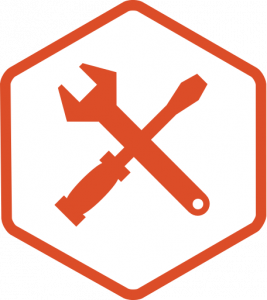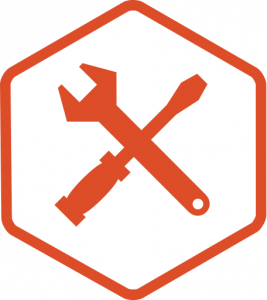By Matt Trenchard - posted on May 10, 2017
Creating Coaching Cultures: Be The Change You Want To See
 This is the sixth article in our series on Creating a Coaching Culture. This series of articles is primarily focussed at HR and Development professionals wanting to transform the culture of their organisation and are seeing the potential of embedding coaching abilities within their organisation to achieve these goals. In this series, we’ll hear from professionals in the region and learn from their experience, struggles and successes.
We’re giving away for free a full coach training on our Certificate in Professional Coaching programme, starting in October, to the HR or Development professional who engages most with these articles and who demonstrates the biggest shift in introducing a coaching culture to their organisation. Further details of what we’ll be looking for in our ideal winner can be found here.
This is the sixth article in our series on Creating a Coaching Culture. This series of articles is primarily focussed at HR and Development professionals wanting to transform the culture of their organisation and are seeing the potential of embedding coaching abilities within their organisation to achieve these goals. In this series, we’ll hear from professionals in the region and learn from their experience, struggles and successes.
We’re giving away for free a full coach training on our Certificate in Professional Coaching programme, starting in October, to the HR or Development professional who engages most with these articles and who demonstrates the biggest shift in introducing a coaching culture to their organisation. Further details of what we’ll be looking for in our ideal winner can be found here.
Last week Sarah helped us to narrow our focus and make decisions around how to create that best coaching culture for your organisation. Today, having gained purpose and direction, we are adding to this with action. We’re asking ourselves the question, what specific action can you take to move your coaching culture forward?
 Later in this article we will be referring you to our “Coaching Culture Canvas” tool. You can learn more about this tool here and download your copy here. Today we’re focussing on the section titled, “Activise.”
Later in this article we will be referring you to our “Coaching Culture Canvas” tool. You can learn more about this tool here and download your copy here. Today we’re focussing on the section titled, “Activise.”
Starting a movement
The title of this post is from a misquote of Ghandi yet it speaks to the need for all change and transformation to begin with us. All growth in our individual lives begins with a shift internally within ourselves. All growth organisationally also begins within people, and at first within one person. In his 2010 TED talk called “Starting a Movement”, Derek Sivers showed us how one person willing to take action can attract others towards their cause.
[embed]https://download.ted.com/talks/DerekSivers_2010U-480p.mp4[/embed]
Choosing to take action
In the last two posts, we heard from industry leaders that coaching was being deployed in three ways.- Use of external coaches
- Resourcing of internal coaches
- Development of managerial and leadership coaching skills
Actions for your organisation
For corporate action, we saw correlations to the size of the organisations and to the maturity of the coaching cultures. For the purposes of analysis, we categorised the sizes of organisations into Local, Regional and International. We classed the maturity of the coaching cultures as Low, Medium or High. Consider your own organisation, department or team. Based on the size and maturity of the coaching culture, which of the following is an action to take or recommend?|
Size Maturity |
Local | Regional | International |
| Low | Begin use of external coaches for senior leaders | Begin use of external coaches for senior leaders | |
| Gather and promote employees who have existing coach training. | |||
| Medium | Enhance inter-personal intelligence of key leaders through coaching style best practice. | Enhance inter-personal intelligence of key business functions through coaching style best practice. | Grow coaching capacity of organisation through development of internal coaches. |
| High | Invest in leaders as coaches through training and recruitment | Partner with ICF accredited school to develop “Leader as coach” development programme | Create internal ICF accredited coach development programme. Align manager / leader performance assessment to coaching competencies. |
Action for you
Anecdotally, more than half of HR professionals we spoke with see a coach training programme on their own personal development pathway. This is the most common next personal step for those in the human development industry. We heard from Swati Singh, Head of Learning and Development at Easa Saleh Al Gurg Group, who recently graduated from North Point Coaching Academy’s 4-month Certificate in Professional Coaching. Swati let us know that she has made, “significant and meaningful shifts,” as a result of completing a full coach development programme. She has, in her own words, “become a more aware coach and I would like to recommend it to anyone who is looking to drive impactful and sustainable growth in themselves and others.”What steps will you take?
 Go to your Coaching Culture Canvas.
In the Activise section, consider the following questions and note down your thoughts.
Go to your Coaching Culture Canvas.
In the Activise section, consider the following questions and note down your thoughts.
- What Wildly Important Goals (WIGs) do we need?
- Who needs to be involved?
- What is my first / next step?
Competition for one HR professional to win a complimentary place on our October 2017 programme.
As part of this coaching cultures series, we will be giving away one seat on our October 2017 course completely free to one HR or Development professional. The NPCA Certificate in Professional Coaching is a 16-week coach development programme, which is accredited by the International Coach Federation (ICF). In 2017, we have programmes starting in May and October. To be in with a chance of winning, we are looking for the person who engages most with these articles over the next two months by commenting below in the comments box, sharing, liking and commenting on our social media pages. The winner will also be someone who has demonstrated the biggest shift in introducing a coaching culture within their organisation. Please read our competition rules. The winner will be announced on 31st May 2017.Next week
Join us for our next post, when my colleague Sarah will help us to consider how to stay on track and build support for the coaching culture that your organisation needs.
If you want future articles delivered to your inbox or to be considered for the competition prize, sign up to the NPCA Community.